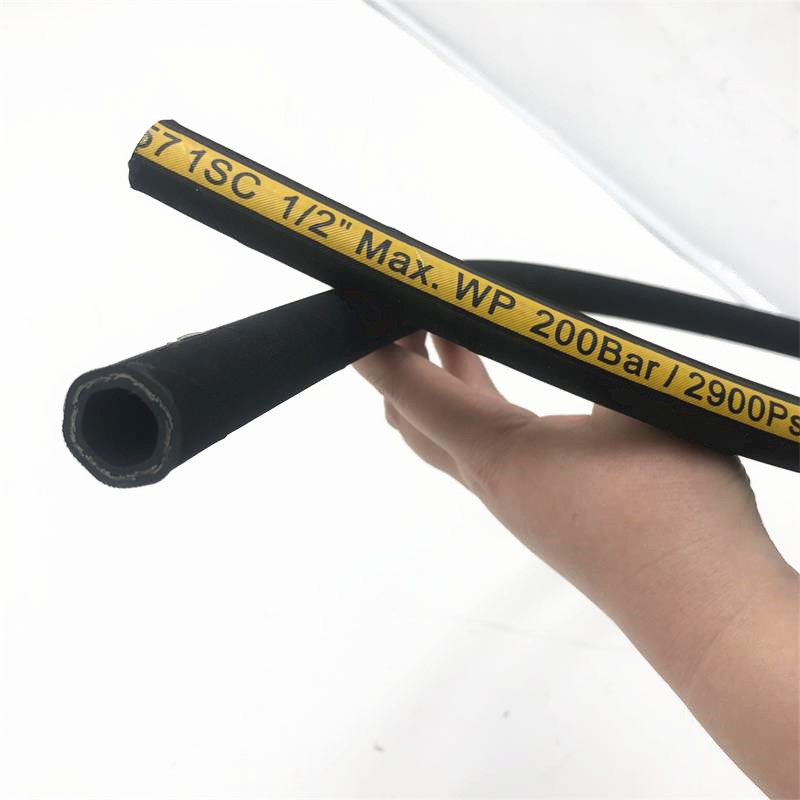335345435
Oct . 01, 2024 11:02 Back to list
Durable Rubber Hoses for Fuel and Oil Resistance in Diverse Applications
Understanding Gasoline-Resistant Rubber Hoses
In the modern world, where fuel-efficient systems and reliable transportation are paramount, gasoline-resistant rubber hoses play a crucial role. These specialized hoses are designed to withstand the harsh conditions associated with fuel systems, ensuring safety, efficiency, and durability in various applications. Understanding the characteristics, applications, and benefits of gasoline-resistant rubber hoses can help consumers and manufacturers make informed choices.
What Are Gasoline-Resistant Rubber Hoses?
Gasoline-resistant rubber hoses are specifically formulated to handle the chemical properties of gasoline and other petroleum-based products. Unlike standard rubber hoses, which can degrade when exposed to hydrocarbons, gasoline-resistant hoses are engineered to resist fuel permeation and wear, ensuring longer service life and reliability. The key ingredients in these hoses typically include synthetic rubbers, such as nitrile, which provide excellent resistance to fuel and oil.
Key Characteristics
1. Chemical Resistance The primary attribute of gasoline-resistant rubber hoses is their ability to withstand exposure to gasoline without breaking down. This resistance protects the hose from swelling, cracking, or losing structural integrity over time.
2. Flexibility and Durability These hoses are not only resistant to chemicals but are also designed to be flexible enough to handle movement and vibrations within a vehicle’s engine compartment. This flexibility reduces the risk of kinks and blockages, which can compromise fuel flow.
3. Temperature Tolerance Gasoline-resistant rubber hoses can generally handle a wide range of temperatures. They perform well in both cold and hot conditions, ensuring reliable performance under various environmental factors.
4. Pressure Endurance Given that fuel systems often operate under significant pressure, these hoses are built to withstand high-pressure scenarios without rupturing or leaking, ensuring the safety of the fuel delivery system.
gasoline resistant rubber hose

Applications
Gasoline-resistant rubber hoses are widely used across numerous industries. Here are some common applications
1. Automotive Systems In vehicles, these hoses are crucial for fuel delivery from the tank to the engine. They are often found in fuel lines, preventing leaks that could lead to inefficient fuel use or dangerous spills.
2. Industrial Equipment Many industrial machines use gasoline and require reliable hose systems. Gasoline-resistant hoses are utilized in generators, construction equipment, and other machinery to ensure safe fluid transport.
3. Fuel Transfer In settings such as fuel stations and service centers, these hoses facilitate the transfer of fuel from one container to another, ensuring that the process is safe and effective.
4. Marine Applications Boats and other marine vessels utilize gasoline-resistant hoses to transport fuel safely and efficiently, as exposure to water and varying temperatures poses additional challenges.
Benefits of Using Gasoline-Resistant Rubber Hoses
Utilizing gasoline-resistant rubber hoses brings a multitude of advantages. The foremost benefit is the enhanced safety they provide by minimizing the risk of leaks and spills. Additionally, the durability of these hoses translates into lower maintenance costs and less frequent replacements, making them a cost-effective solution in the long run. Moreover, their reliability ensures that fuel systems operate efficiently, enhancing overall vehicle performance.
In conclusion, gasoline-resistant rubber hoses are an essential component in modern fuel systems, offering remarkable resistance to chemical degradation, flexibility, and durability. Understanding their design and application can help users make well-informed choices, promoting safety and efficiency across various industries. As technology continues to evolve, so too will the materials and capabilities associated with these crucial components, further enhancing their performance in the ever-demanding world of fuel transport.
-
Discount Hydraulic Hose Factories | Top Quality & Discounts
NewsJul.20,2025
-
EN856 4SP Hydraulic Hose - High Pressure & Durable
NewsJul.20,2025
-
SAE 100 R17 Black Smooth Cover Hydraulic Hose
NewsMar.07,2025
-
SAE 100 R17 Black Smooth Cover Hydraulic Hose
NewsMar.07,2025
-
SAE 100 R17 Black Smooth Cover Hydraulic Hose
NewsMar.07,2025
-
SAE 100 R17 Black Smooth Cover Hydraulic Hose
NewsMar.07,2025



